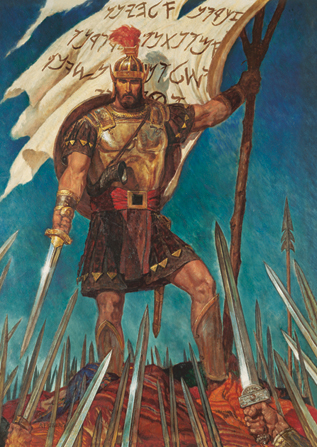In trying to motivate us to do something, Elder Bednar employs
epideictic oratory talking about the virtues of communication. He breaks his
message down into various parts and then uses testimony of others to highlight
his points.
- He used the testimony of past prophets to give authority to his message.
- He used the examples of the church to show that this is not just something he is asking us to do, but to show that the church itself is getting involved.
- He used the ideas of church members to highlight that anyone of us can use social media; it need not be hard or time consuming.
 |
| Elder Bednar, leading the troops in the digital age. (you know you thought the same as you watched) |
Perhaps what impressed me the most was that even though I
was watching this for an assignment, by the end of the video I was excited to get
out there and start posting things online. He had the authority, he had the
logic, then he plead for us to take it from a slow trickle to be a flood, if
that didn’t get you excited for battle with the adversary, I don’t know what
will.
Contrast this to
Socrates who uses judicial oratory to show the injustice and wrongness of the
study of persuasion. Socrates knows that he has an audience, and he wants to
tear down rhetoric to show that it is not fit for the use of man. He works hard
to use logical arguments to catch a master sophist off guard. He shows the
crowd that Gorgias goes back and forth on the justice and injustice of rhetoric
and thereby tries to show that it is not a techne and as such deserves no
place.
I think Elder Bednar would disagree with Socrates about the
goodness of rhetoric. From Elder Bednar’s perspective, Socrates is throwing out
the baby with the bath water.
I agree, I think Socrates needs to think about the values and merits of Rhetoric. It is a tool which can be abused, but in the right hands it can be utilized to do good. Look at rhetoric as a purely evil device doesn't make sense to me.
ReplyDeleteYou and many others have mentioned that Elder Bednar's speech was epideictic. I would like to suggest that it is also deliberative. Deliberative oratory "encompasses any communication for or against given future action" (rhetoric.byu.edu). The given action would be our increased, positive participation in social media, and Elder Bednar speaks in favor of such.
ReplyDelete